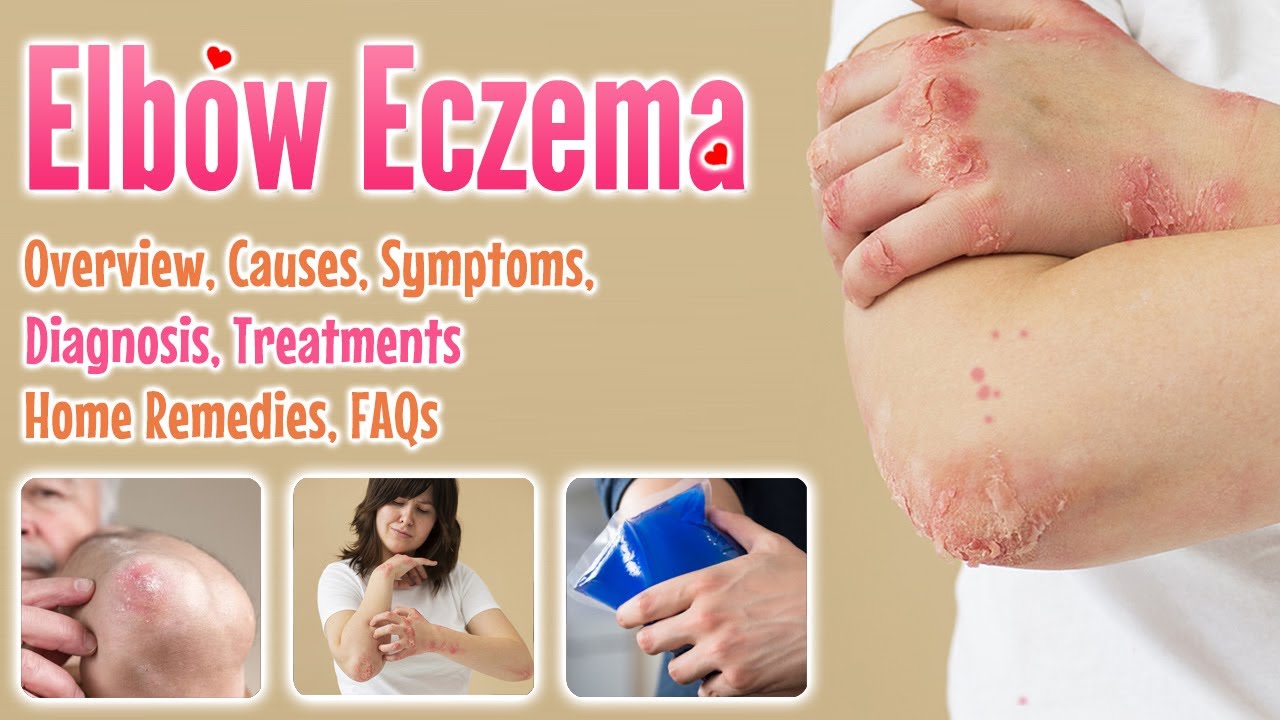
Eczema, a skin condition affecting millions worldwide, can be particularly challenging when it manifests on the elbow. In this comprehensive guide, we will explore the nuances of eczema, its specific impact on the elbow region, and effective strategies for managing and alleviating symptoms.
In this video, we will guide you through the causes, signs, and symptoms of eczema on the elbow, explore the diagnosis and differential diagnosis processes, delve into treatment and prevention options, share practical home remedy tips, and address frequently asked questions.
By the way, welcome to our channel. don’t forget to thumb up and subscribe.
Elbow eczema definition
Eczema on the elbow involves compromised skin barrier proteins, allowing moisture loss and heightened vulnerability to irritants. Immune imbalance triggers inflammation and itching. Persistent scratching worsens the damage, hindering skin repair. This localized pathophysiological shift underscores the need for targeted interventions addressing the weakened barrier and immune dysregulation to effectively manage elbow eczema.
Causes and trigger factors of elbow eczema
The causes of eczema on the elbows are not entirely clear-cut. Eczema, in general, is a multifaceted condition influenced by a combination of genetic, environmental, and lifestyle factors.
Here are six common causes and trigger factors for eczema on the elbows:
- Genetic Predisposition:
Family history increases the chance of elbow eczema due to inherited skin factors.
- Environmental Factors:
Harsh weather and irritant exposure contribute to eczema on the elbows.
- Allergens and Irritants:
Contact with fabrics or chemicals triggers eczema; identifying and avoiding is crucial.
- Stress and Emotional Triggers:
Emotional stress links to elbow eczema onset and exacerbation, requiring management strategies.
- Dry Skin:
Insufficient moisture heightens elbow eczema susceptibility; regular hydration is essential for prevention.
- Microbial Infections:
Scratching introduces infections, complicating elbow eczema; proper care and hygiene are vital.
Symptoms of elbow eczema
- Persistent Itching:
Eczema on the elbows often manifests with intense and persistent itching, leading to discomfort and a desire to scratch.
- Redness:
The affected area on the elbows may exhibit redness, indicating inflammation and an immune response characteristic of eczema.
- Dry and Flaky Skin:
Eczema can cause the skin on the elbows to become dry and flaky, leading to rough patches and a visibly altered skin texture.
- Swelling:
In more severe cases, eczema on the elbows may result in swelling, indicating an increased immune response and potential inflammation.
- Inflammation:
The elbow region may show signs of inflammation, such as warmth and increased blood flow, contributing to the overall discomfort associated with eczema.
differential diagnosis of elbow eczema
Eczema on the elbow is diagnosed through clinical examination and patient history, focusing on symptoms like persistent itching, redness, dry skin, and inflammation. While specific tests aren’t available, a skin biopsy may be considered to rule out other conditions, highlighting the importance of a comprehensive assessment.
Distinguishing eczema from similar conditions, such as psoriasis, contact dermatitis, fungal infections, allergic reactions, and seborrheic dermatitis, is crucial. Accurate differentiation involves considering individual characteristics, exposure patterns, and triggers. Consulting with a dermatologist is essential for nuanced diagnosis and a personalized treatment plan for eczema on the elbows.
treatment options of elbow eczema
Eczema on the elbow requires a multifaceted approach for effective management. Treatment focuses on alleviating symptoms, preventing flare-ups, and maintaining optimal skin health. Here are several options:
- Topical Steroids like Hydrocortisone cream can effectively reduce inflammation, redness, and itching associated with eczema on the elbow.
- Consider using Tacrolimus (Protopic), a topical calcineurin inhibitor, as an alternative to steroids for managing inflammation, particularly in sensitive areas like the elbows.
- For relief from itching, oral antihistamines such as Cetirizine (Zyrtec) can be beneficial, promoting comfort and improved sleep for individuals dealing with eczema.
- In severe cases, systemic medications like Prednisone (oral corticosteroid) may be prescribed, offering a more comprehensive approach to modulate the immune response and control eczema symptoms.
- Dermatologists may recommend wet wrap therapy, involving the application of a damp layer over medications like corticosteroids, to enhance their effectiveness and provide additional moisture to the skin during eczema flare-ups.
- Controlled exposure to ultraviolet (UV) light under medical supervision can be effective in managing eczema symptoms on the elbows.
Home remedy tips for elbow eczema
- Avoiding Triggers: Identifying and avoiding specific triggers, such as certain fabrics or skincare products, is crucial for preventing eczema episodes.
- Regular Moisturization: Applying a hypoallergenic moisturizer daily helps maintain skin hydration, reducing the risk of eczema flare-ups on the elbows.
- Coconut Oil:Applying virgin coconut oil to the affected area can provide natural moisture, helping to soothe dry and flaky skin associated with eczema on the elbow.
- Oatmeal Baths: Soaking in an oatmeal bath can help relieve itching and inflammation. Add colloidal oatmeal to warm bathwater and soak for 15-20 minutes for soothing effects.
- Aloe Vera Gel: The natural anti-inflammatory properties of aloe vera gel can be beneficial for eczema. Apply a thin layer to the affected area to alleviate redness and irritation.
- Cold Compress: Using a cold compress can help reduce inflammation and ease itching. Place a clean cloth soaked in cold water on the elbow for a few minutes to provide relief.
FAQ
- Can eczema on the elbow be completely cured?
While there is no cure for eczema, effective management strategies can significantly reduce symptoms and improve quality of life.
- How often should one moisturize to manage eczema on the elbow?
Moisturizing should be done at least twice daily, and more frequently during flare-ups, to maintain skin hydration.
- Are there specific foods to avoid for eczema sufferers?
Individual triggers vary, but common culprits include dairy, gluten, and certain nuts. A food diary can help identify personal triggers.
- Is stress a major factor in eczema flare-ups?
Yes, stress can exacerbate eczema symptoms. Incorporating stress-reducing practices is beneficial for overall skin health.
- Can eczema affect mental health?
Eczema’s visible symptoms and chronic nature can impact mental health. Seeking emotional support and coping mechanisms is essential.